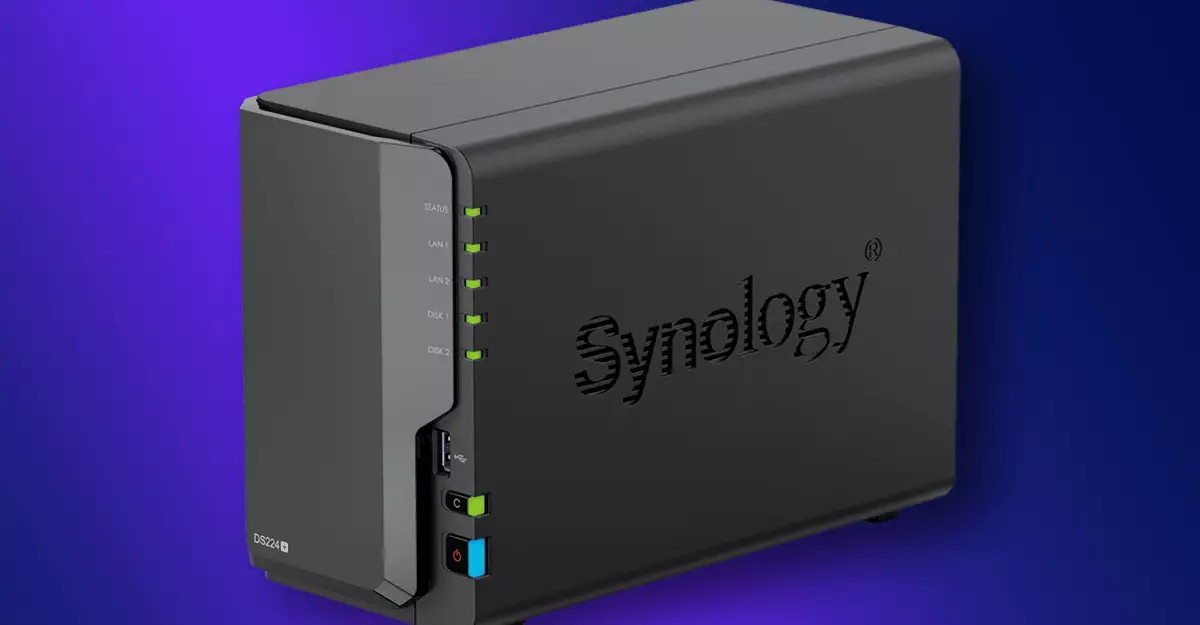In a remarkable development for network attached storage (NAS) users, Synology has made waves with its announcement regarding new restrictions on using third-party hard drives in its future devices. While Synology’s loyal customers may enjoy the peace of mind that their current systems remain unaffected, the implications for newer models are substantial. With advancements in technology come responsibilities, and Synology finds itself at the intersection of quality control and user flexibility. The company claims that this decision, rolling out with the Plus Series models set for release in 2025, is deeply rooted in enhancing performance and reliability, but it raises a fundamental question: at what cost to consumer freedom?
The Promise of Enhanced Reliability
According to Synology, the new measures stem from extensive internal testing which indicates that third-party drives, when carefully vetted, minimize risks associated with drive failures and compatibility snafus. The company asserts that only Synology-branded drives or those passing its rigorous validation will unlock the full potential of its systems. This move ostensibly aims to streamline user experiences by reducing potential obstacles associated with unregulated hardware.
While this approach taps into a genuine desire to enhance user experience, one can’t help but question whether Synology is prioritizing brand loyalty over accessibility. For many users, backing up data and maintaining a reliable local server shouldn’t come with limitations on the variety of devices they can integrate into their existing systems. Users often select third-party products not only for cost-efficiency but also for increased freedom of choice. The emerging scenario creates a conundrum where performance enhancements may be overshadowed by a diluted user experience.
Impacts on Existing Users Versus New Buyers
An interesting facet of Synology’s announcement is the reassurance that existing NAS systems will not bear the brunt of these changes. Owners of devices released in 2024 or earlier can breathe a sigh of relief, free from the anxiety of potential obsolescence. However, the prospects appear daunting for new buyers eyeing the Plus Series models. The necessity for users to comply with designated drives might dampen their overall enthusiasm for Synology products.
In an era characterized by technological empowerment and massive choice, the idea of being tethered to a specific brand’s hard drives feels regressive. Users invest in Synology’s NAS systems for their impressive suite of features, and the idea that they would have to alter their purchasing decisions based on compatibility can be quite unsettling. The dissonance between old and new systems is palpable, leading to anxieties around future compatibility and performance that could slowly erode the brand’s standing.
Trade-offs in Cost and Choice
One significant downside to these new restrictions will likely be the impact on pricing. By limiting users to Synology-approved drives, the choices available shrink considerably, which could ultimately result in higher costs for consumers. The very nature of competition allows price reductions to flourish, as third-party manufacturers often provide more affordable alternatives to brand-name products. Users who are devoted to maximizing their dollar may feel cornered by this limitation. It feels counterproductive to promote reliability if it comes at the expense of affordability and choice.
Moreover, this trend of restricting compatibility is not unique to Synology; it points to a larger industry practice where companies assert control over their ecosystem. While safeguarding functionality and reliability is vital, imposing barriers could alienate users who cherish flexibility in their technology choices. The balance of performance versus accessibility in technology is a dance that should favor the user, not the manufacturer alone.
The Big Picture: A Dual-Edged Sword
Microsoft, Apple, and other tech giants have historically faced backlash for practices that limit third-party support, fueling debates around consumer rights versus corporate control. Thus, it’s key for Synology to navigate this territory thoughtfully. The proposed move, while intended to enhance reliability, needs to be examined critically in the larger context of consumer empowerment.
In an era where personal data and digital content are paramount, unfettered access to reliable storage solutions should be prioritized over brand allegiance. After all, for many tech enthusiasts and everyday users, the most critical metric for a successful NAS system is its ability to adapt and integrate seamlessly into their digital lives. As Synology embarks on this ambitious journey, it must remain conscious of the delicate balance it holds between reliability and customer freedom. The outcome of these changes remains to be seen, but one thing is certain: consumers will demand more than just a seamless tech experience; they will seek to retain their power to choose.

